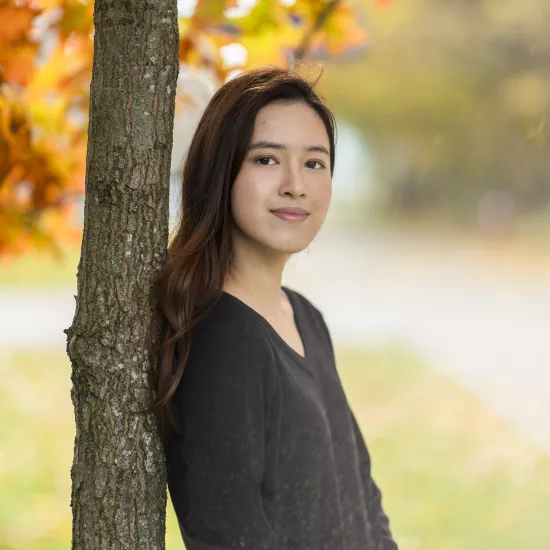Putting your heart and brain into meditating

Want to get better at meditating? Try taking a selfie.
That’s how it works with Wildflowers Mindfulness, a new meditation app that uses your mobile device’s camera as a touchless heartrate detector. You photograph your face before and after a guided meditation, and it analyzes subtle colour changes in your face caused by your heart beat to determine your pulse. A second option involves photographing your finger with the flash on – this lets the camera capture the different shades of blood inside, which relate to different heart rates. If your pulse is lower after a session, it could mean that it had a calming effect.
“The general goal of meditation is to promote relaxation, and a lot of that comes from anecdotal evidence,” says UTM psychology professor Norman Farb, who consulted on the app’s development for Toronto technology firm Mobio Interactive. “This app provides biometric data that lets users better understand the consequences of the technique.”
Those consequences can also be measured by the app’s other innovative biofeedback function: measuring the electrical activity of your brain. If you wear an EEG headset that’s compatible with the app, it can study your brain waves to determine whether your mind is focused and calm, or distracted and anxious. The app also lets you also track your mood immediately before and after a meditation session by tapping options such as tense, excited, satisfied and gloomy, and also by typing in how you feel. The app stores and averages all of this information to show the cumulative impact of the meditation on your wellbeing.
“Over time, that data can tell you if you are in a place of higher or lower emotional distress after meditating,” Farb says. “It’s a way to empower people to notice if meditation makes a difference in their lives.”
The app includes five lessons on how mindful meditation works that include interactive elements, like tapping a flower to make it grow, and exercises to become more resilient. The guided meditations, set to soothing nature sounds, gently encourage you to be more present by observing, but not reacting, to thoughts and feelings, and paying close attention to your breathing. The meditations are delivered by Farb and Angela Warburton, a Toronto-based doctor of traditional Chinese medicine. The app launched last month and is available for Apple devices for $3.99.
Farb is currently conducting research involving 80 UTM undergraduate students to assess the app’s effectiveness at reducing their stress levels. He says the app’s data-collecting capabilities make it possible for the first time to scientifically study the best way to use a meditation app. Mobio plans to use Farb’s research results to refine Wildflowers’ features.
“I want to understand things like what is the minimal dose for someone to benefit? And how does technology supported meditation compare to standard group intervention?” Farb says. “Studying this allows us to get a more nuanced understanding of how a meditation app works and how to make it a better tool.”



